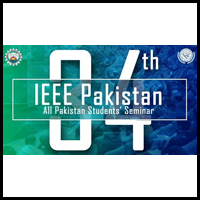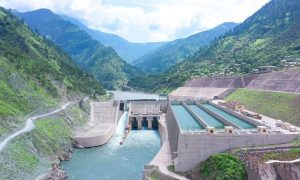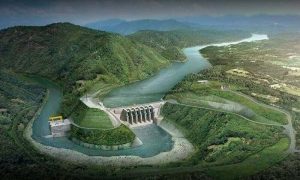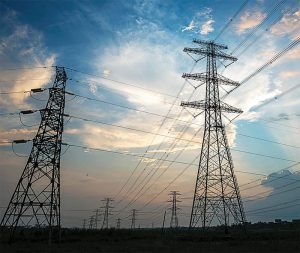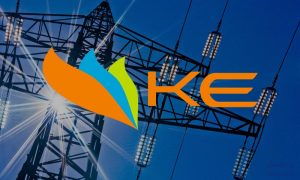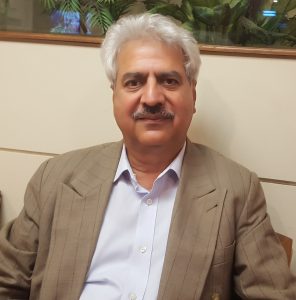
Largest International Symposium of Electrical, Electronics and Allied Disciplines on Latest Trends and Technologies being held on February 20 and 21, 2019 at Hotel Pearl Continental, Karachi.
This showcase event organized by the Institution of Electrical and Electronics Engineers Pakistan (IEEEP), Karachi Centre, will be inaugurated by Engr. Imtiaz Ahmed Shaikh, the Minister of Energy, Govt. of Sindh.
The five Technical Sessions of the Symposium studded with presentations by high profile engineers and scholars and an exciting panel discussion not only caters for engineering soul but the hi-teas and lunches take care of the other human needs as well.
Eminent speakers and engineers from within the country and abroad shall be presenting papers on topics such as Distributed Generation through Micro Grids and Rooftop Solar, HVDC Transmission, Smart Cities, Net Metering, Electrical Vehicles, latest Energy Storage Technologies, AI and IoT etc.
An exciting Panel Discussion with eminent experts like Engr. Suleman Najeeb Khan, Dr. Kaiser Bengali and Engr. Manzoor Shaikh will discuss the question if the DAMS will be able to provide the Recourse to Electricity and Water Problems of the Country?
The IEEEP has never been shy of catching the bull by its horns. Whereas last year the Panel Discussion on CPEC issues was instrumental in forcing the GoP to revisit some of its bilateral policies, this year’s topic “Dams or no Dams” may help the engineers claw back some the engineering space lost to the bureaucrats.
The IEEEP feels that though the dissemination of technical knowledge should remain its primary goal, establishing Engineering Writ through the Institution has perhaps become another important goal for its immediate future. While the engineers have shown complacency, some other agencies of the state, studded with bureaucrats, have taken the engineering space and are calling the shots.
While the membership base of engineering institutions is slowly eroding for various reasons, the engineering community is somehow also losing the sense of fraternity within itself. There is a need to create a general understanding within the engineering community that institutional work always creates a win-win situation for everybody involved in it. However since the immediate wins are not there anymore, and patience is no more a virtue in a fast moving corporate world, the members are looking for a paradigm shift.
The main problem is that the self-preservation stage of our young engineers has been stretched to almost half of their professional life because of non-availability of proper jobs according to their education, or perhaps because of their education being out of phase with the market requirements. Though, through this Symposium we do try to bring academia and the industry closer together, this effort is however increasingly diminished due to the lack of support from the professional community which is itself through with the initial struggle of self-preservation. We urgently need larger engineering organizations also, especially from the Private Sector to support the institutional work as is done in other fast developing Asian countries.
On the steadier side, the IEEEP Multi-topic International Symposium is a snap shot of recent local activities in the electrical and electronics engineering fields with a look into the future concerns. Based on the market information, the Institution tries to put those topics on the table for general discussion and awareness, which need to be given proper attention by those who have taken the responsibility of the public good.
The 34th Symposium has, like previous years, 15 papers to offer in the three Technical Sessions foreseen for the professional engineers and the three presentations from Students based on their final year projects, selected from a Students’ Seminar earlier. Incidentally the Students’ presentations are known for their much better technical content comparatively.
The presentations however, even those from invited foreign experts, are Pakistan centric, implementable and offer short term result seeking solutions. It is this approach that has made the Symposium unique amongst many being held by other engineering institutions.
The two major recommendations of IEEEP Symposium 2018 have brought a visible change for the better in the GoP policies.
1) Future CPEC Projects will have 30% Local Value Addition, instead of 0% previously.
2) Renewable Energy (RE) contribution in the Energy Mix will be 25% by 2025, instead of 5% originally mis-planned.
The above changes in GoP policies have been a result of untiring efforts of engineers throughout Pakistan who were also provided a platform by IEEEP to voice their concern over the State of Industry in its Symposia, Seminars and Exhibitions.
However much is needed to be done. The Industrial Sector in Pakistan has been continuously shrinking since Pakistan started running out of Electrical Power about 20 years ago due to unreliability of the utilities followed by industrial relocation, obsolescence and lack of sufficient drive on the part of industrialists due to political expediencies.
In 2003 at the 18th IEEEP International Symposium, the then MD Sui Southern and a Fellow of IEEEP, pointed out during his keynote speech that Pakistan was perhaps the only country in the World which did not have an Energy Policy. It became a major recommendation of the Symposium. The media also took it seriously. The PM was alarmed. The President came into action and the GoP than hurriedly put up an Energy Policy together within 3 months to save itself from embarrassment. It is this Energy Policy which still exists.
On the basis of the Energy Policy, the RE Policy was introduced in 2006, updated in 2011 and eventually expired in early 2018. We are without an RE Policy for almost a year now. Renewables are stuck up because there is no policy. GoP is not getting embarrassed this time. It has been dragging its feet on RE policy issues as the bureaucrats think that the renewables have high initial cost mostly in dollars and would generate a balance of payment issue.
The GoP policies, or lack of policies for that matter, have accelerated the rot. The society has become a full blown consumer’s society and now there is a balance of payment issue which is seriously hindering GoP’s development plans.
Qarz ki peete thay mai or jante thay ham ke han
Rang laye gi hamari faaqa masti ek din
Even those items which are being manufactured locally are allowed to be imported with impunity. What to say of engineering goods, the GoP imported USD 1Bn worth of vegetables in 2018. It is now also contemplating to import cotton, duty and tax free, as in 2018 there has been a drop in cotton production in the Country by 9.7%.
Such is the state of affairs. A recent example has been the Detailed Engineering Design of 800MW Mohmand Dam which was done by an Australian company for Rs. one billion. Where are the Pakistani engineers, with almost a thousand PhDs amongst them in about 160 Technical Institutions? Why nobody from the Academia is coming out and claiming these kinds of jobs for themselves. These are serious questions for which answers need to be found. The Symposium 2019 will perhaps be able to provide answers to some of the important issues being faced by the Country.
While the engineering community in Pakistan continuously suffers at the hands of non-technical bureaucracy including the important engineering jobs being doled out to non-engineers with impunity by certain agencies, the Institution should at least be able to protect the self-respect of each individual engineer. The times have changed and a paradigm shift is required.
Chashme num, jane shoreeda, kafee naheen
Tuhmate Ishq, posheeda, kafee naheen
Aaj bazaar main, pabajolaan chalo
List of some of the presentation/papers to be delivered at the 34th Multi-topic Symposium
Keynote address on “Privatization of Utilities”
Mr. Moonis Abdullah Alvi, CEO K-Electric
Impact on Pakistan’s economy of small scale grid-tied solar systems
Engr. Mohammad Zeeshan Afteb Alam, DGM, Orient Energy Systems (Pvt) Ltd.
Virtual Power Plants – a closer look is required
Engr. Rehan Hamid, CEO STDC, GoS
Off grid Solar Home Systems under Sindh Solar Energy Project – a life changer for remote villages
Ms Umul Awan, Energy Specialist, World Bank
Upgrading Electrical Transmission System by using High Performance Materials in Cables
Engr. Umair Laeeq Khan, Pakistan Cables and Dave Bryant CTC Global
Why AVRs Fail to Protect Power Sensitive Equipment!
Engr. Navid Akram Ansari, MD Systek (Pvt) Ltd.
Non-destructive Analytical Testing – A fractional-order approach
Engr. Syed Sajjad Hussain, Hamdard University
Beyond Illumination
Engr. Jamil Ahmed, Signify Pakistan Ltd.
Energy Usage Optimization using Locally Developed Systems
Dr. Hashim Raza, NED UET
Microgrids – an important element of future distribution systems in Pakistan
Engr. Mujtaba Ahmed Qadri, Energy Management & Digital Grids, Siemens Pakistan
Panel Discussion
Topic: Dams or no Dams – that is the question
Moderator: Dr. Muhammad Zubair Ahmed, Associate Dean, Iqra University
Panelists: Engr. S S A Jafri, President Jafri & Associates
Engr. Suleman Najeeb Khan, Director Solo Dynamics Corporation (Pvt) Ltd.
Mr. Ayaz Palijo
Dr. Kaiser Bengali, Economist, Prof. at SZABIST
Engr. Manzoor Shaikh
One participant from the audience


